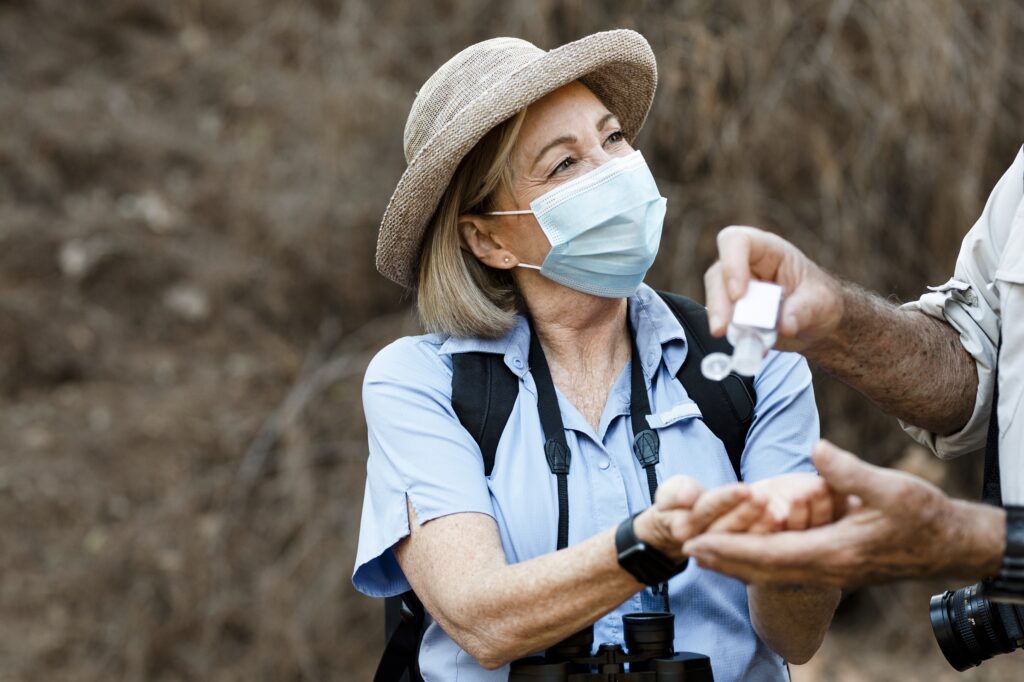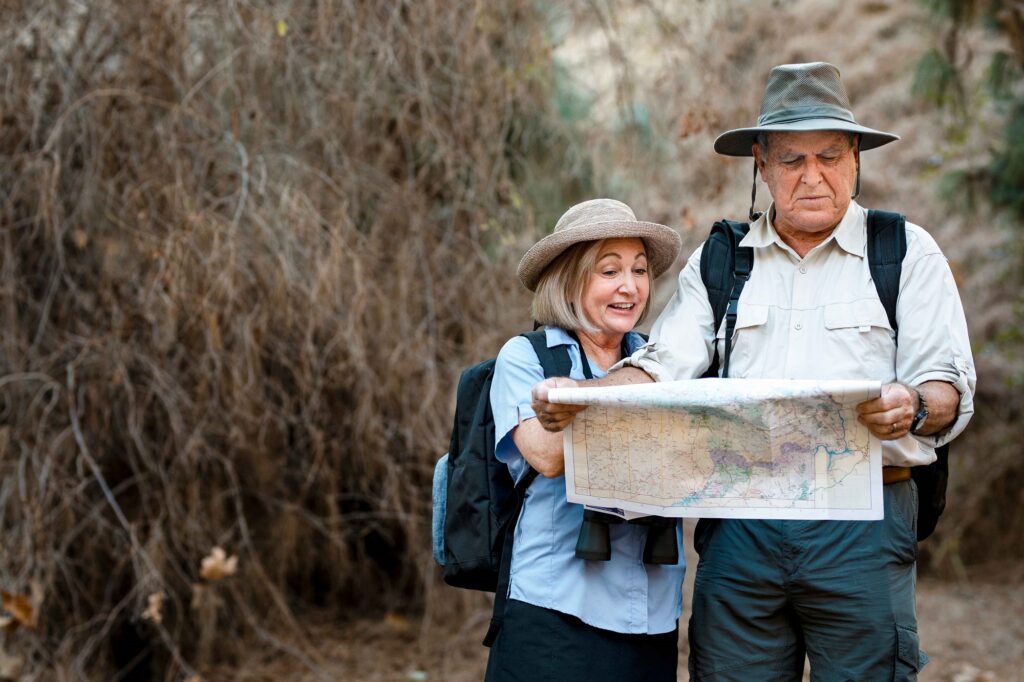Traveling as a senior can be an exciting and fulfilling experience, but it also requires extra preparation, especially when it comes to managing medications.
Whether you’re heading on a short domestic trip or an extended international vacation, ensuring your medications are properly packed, stored, and accessible is crucial for a smooth and worry-free journey.
This guide will cover everything seniors need to know about traveling with medications, from packing tips to international regulations and emergency planning.
Why Medication Management Matters for Senior Travelers
Many seniors rely on daily medications to maintain their health. Travel disruptions such as time zone changes, security checks, and lost baggage can pose challenges to medication adherence. Proper planning helps:
- Ensure uninterrupted medication schedules
- Prevent legal issues at international borders
- Avoid missed doses due to lost or misplaced medication
- Reduce stress and allow for a more enjoyable trip
Pre-Trip Planning: Preparing Your Medications
Before you travel, taking a few key steps can prevent common issues:
- Consult Your Doctor: Schedule a visit to discuss any necessary adjustments for your medication schedule and obtain a doctor’s note if needed.
- Check Travel Regulations: Research airline and international rules for carrying medications to avoid legal issues.
- Organize Your Medications: Use labeled containers and pack extra doses in case of delays.
- Make Copies of Important Documents: Keep copies of prescriptions, a doctor’s note, and an updated medication list in both digital and physical forms.
Consult Your Doctor
- Schedule a visit with your healthcare provider at least a month before your trip.
- Discuss how travel might impact your medication schedule, especially if crossing time zones.
- Request a doctor’s note detailing your prescriptions, dosages, and any medical conditions.
Check Travel Regulations
- Research airline and TSA (Transportation Security Administration) rules for carrying medications.
- Look up international laws regarding prescription drugs, as some medications are restricted in certain countries.
- Ensure you have a copy of your prescriptions with both brand and generic names listed.
Organize Your Medications
- Use a pill organizer to keep track of daily doses.
- Keep medications in their original labeled bottles to avoid confusion at security checkpoints.
- Pack extra doses in case of delays.
Make Copies of Important Documents
- Have copies of your prescriptions, doctor’s note, and a list of all medications.
- Keep both physical and digital copies stored securely.
Packing and Transporting Medications
Proper packing ensures that medications remain effective and accessible throughout your trip.
Carry Medications in Your Carry-On
- Never pack essential medications in checked luggage to avoid loss or damage.
- Keep them in a clear, resealable plastic bag for easy access during security checks.
Store Medications at the Right Temperature
- Some medications, like insulin, require refrigeration. Consider using a portable medical cooler.
- Keep medications away from direct sunlight and heat.
Use Travel-Friendly Containers
- Opt for travel-sized medication containers if legally allowed.
- Consider using a weekly pill organizer for convenience but keep original labels for security checks.
Time Zone Adjustments and Medication Schedules
If you’re traveling across multiple time zones, it’s essential to adjust your medication schedule accordingly. For example, if you’re traveling from New York to London (a five-hour time difference) and usually take medication at 8 AM, you may want to gradually shift your dose an hour earlier each day leading up to your trip.
Alternatively, consult your doctor about taking the dose at the equivalent local time upon arrival to maintain consistency.
- Gradual Adjustment: A few days before departure, gradually shift medication times to match the new time zone.
- Set Alarms or Reminders: Use a travel watch, phone alarm, or app to stay on schedule.
- Consult Your Doctor: For critical medications like insulin or blood pressure medicine, ask for specific guidelines on adjusting dosages.
Navigating Airport Security with Medications
Airports have strict security rules, but following these tips can make the process smoother:
Declare Your Medications
- Inform security officers if carrying liquid medications over 3.4 ounces.
- TSA allows necessary medical liquids, but they may require additional screening.
Know Your Rights
- Medications are exempt from the 3-1-1 liquid rule but must be screened separately.
- You are allowed to carry syringes and injection pens if medically necessary.
Have Documentation Ready
- A doctor’s note and prescription labels can help clear any doubts during screenings.
Traveling with Controlled Substances or Restricted Medications
Some medications, like strong painkillers or anxiety medications, are classified as controlled substances in many countries. Before traveling, check country-specific regulations to ensure compliance.
Commonly restricted medications include opioids, amphetamines, and certain sleep aids. The International Narcotics Control Board (INCB) and government health websites provide updated guidelines on medication restrictions by destination.
Check Country-Specific Laws
- Some countries have strict rules on opioids, sedatives, and stimulants.
- If traveling to destinations with restrictions, obtain a travel waiver or additional documentation from your doctor.
Carry Only What’s Needed
- Avoid bringing large quantities to prevent customs issues.
- Keep medications in clearly labeled containers.
Managing Medication During Long Flights and Cruises
On Flights:
- Set a reminder for doses, especially on long-haul flights.
- Stay hydrated and avoid alcohol if it interacts with medications.
- Keep medications easily accessible in your personal bag.
On Cruises:
- Notify cruise medical staff of any medical conditions requiring medication.
- Ensure you have enough medication for the entire cruise plus extra for delays.
- Be aware of medical facilities onboard in case of an emergency.
What to Do If You Lose Your Medications
Despite careful planning, medications can get lost or stolen. For example, Charmaine, a 68-year-old traveler, arrived in Paris only to realize her bag with essential medications had gone missing.
She quickly contacted her doctor back home, who faxed/emailed a prescription to a local pharmacy, allowing her to get a replacement. To avoid such situations, here’s what to do:
- Remain Calm & Check Your Bags
- Retrace your steps and check all pockets and compartments.
- Contact Your Doctor or Pharmacy
- Many doctors can fax a new prescription to a nearby pharmacy.
- Some travel insurance plans offer assistance in replacing lost medications.
- Visit a Local Pharmacy
- In some countries, pharmacies can provide emergency refills with proper documentation.
- Call Your Travel Insurance Provider
- If your policy includes prescription coverage, they may help locate or cover replacement costs.
Emergency Preparedness: Being Ready for Unexpected Situations
Having a backup plan ensures you’re prepared for any situation.
Carry an Emergency Contact Card
- List allergies, medications, medical conditions, and emergency contacts.
Know Nearby Medical Facilities
- Research hospitals and pharmacies near your destination.
Consider Travel Insurance
- Look for a plan that covers medical emergencies, including lost prescriptions and hospital visits.
Final Thoughts
Traveling with medications requires extra care, but with proper preparation, you can enjoy your journey without stress. By organizing prescriptions, understanding international rules, and having a backup plan, you’ll ensure a safe and seamless travel experience.
Whether you’re embarking on a relaxing cruise or an adventurous trip abroad, following these guidelines will help you stay healthy and worry-free on your travels.
Happy travels and stay well!
Other Articles

Senior Hiking Trails: The Best Scenic Walks for All Fitness Levels
Senior hiking trails is one of the best ways for seniors to enjoy nature, stay active, and experience breathtaking scenery without the need for strenuous activity. Many trails around the

How Much Does Assisted Living Cost in 2026? State-by-State Guide
One of the most common questions families ask when considering assisted living is simple: How much does it cost? Unfortunately, the answer is complex. Costs vary widely depending on location,

Understanding Social Security: What You Need to Know After 60
Social Security is a cornerstone of retirement planning for millions of Americans. It provides financial stability and ensures a steady income stream during your retirement years. However, understanding how to

How to Make Cooking Easier with Senior-Friendly Kitchen Gadgets
Cooking can be a joyful and rewarding experience, but as we age, certain kitchen tasks may become more challenging. Whether it’s arthritis making it tough to grip utensils or reduced

4-Night Amsterdam Cruise Options for Seniors: All-Inclusive Comfort Explained
Short cruises appeal to many older travelers because they offer a taste of Europe without the fatigue that can come with longer itineraries. A 4-night cruise connected to Amsterdam sounds

How to Improve Your Sleep Routine Naturally After 60
Why Sleep Changes After 60 Many older adults notice that their sleep patterns shift over time. You might fall asleep earlier, wake up during the night, or feel tired even





